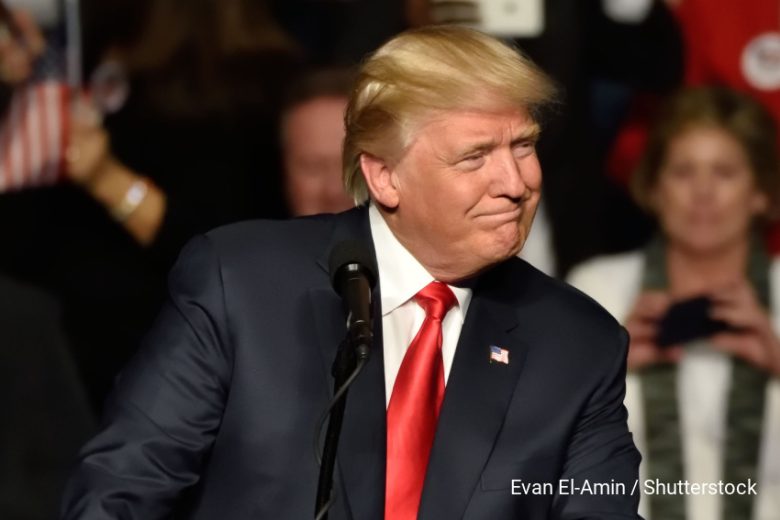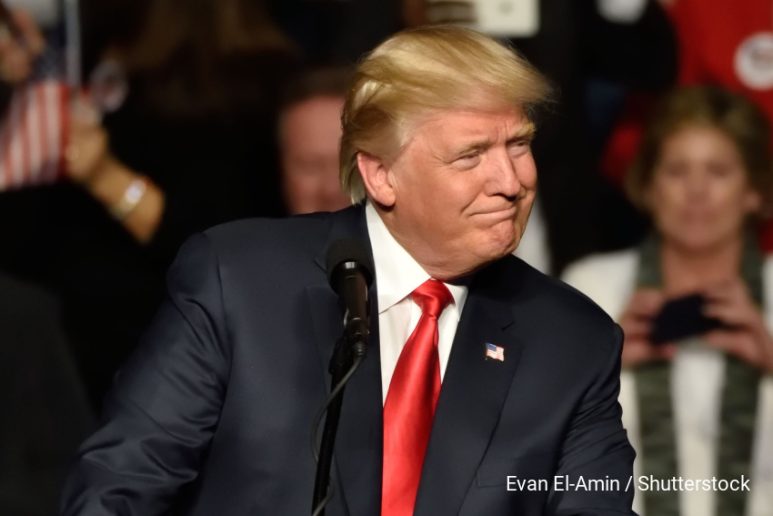By Michael Gaskins
He’s back! Donald Trump has returned to social media, and his timing couldn’t be better as he gears up for the upcoming Republican presidential primary elections. Earlier this month, Facebook and Instagram restored the former President’s accounts. Meta Platforms Inc., the parent company that operates Facebook and Instagram, banned then-President Trump after he wrote posts praising rioters as they incited violence at the U.S. Capitol on January 6, 2021. Trump was suspended “indefinitely” by Meta the following day. Meta’s CEO and Facebook co-founder, Mark Zuckerberg, said Trump had inappropriately used Facebook to incite “violent insurrection” against American democracy.
In May 2021, the Pew Research Center released the results of a poll on whether or not platforms should have permanently banned Trump’s accounts. They found nearly 49% of U.S. adults agreed with the social media ban. Pew officials say that poll was “deeply divided along partisan lines”.

Before his suspension, Trump regularly communicated with his supporters and followers through social media. He had approximately 57 million followers on both Facebook and Instagram. In late January, Meta announced plans to reinstate Trump, determining that “the risk has sufficiently receded,” since the original ban. The company addressed the matter through a blog post on Meta’s Newsroom top stories page written by their Global Affairs President, Nick Clegg. In the article, Clegg asserts that Meta has “put new guardrails in place to deter repeat offenses.” The company also believed that “the public should be able to hear what politicians are saying so they can make informed choices”.
Meta wants Trump to know they mean business if he causes any future infractions. Clegg stated;
“In light of his violations, he now also faces heightened penalties for repeat offenses. In the event that Mr. Trump posts further violating content, the content will be removed, and he will be suspended for between one month and two years, depending on the severity of the violation.”
Trump used the occasion to boast and blast Meta on Truth Social, his own social media site operated by the Trump Media & Technology Group. He wrote:
“Facebook, which has lost billions of dollars in value since ‘deplatforming’ your favorite president, me, has just announced that they are reinstating my account. Such a thing should never again happen to a sitting president, or anybody else who is not deserving of retribution!”
So far, Trump hasn’t posted any new content on either Facebook or Instagram. His last Facebook post is from January 6, 2021, “I am asking for everyone at the U.S. Capitol to remain peaceful. No violence! Remember, WE are the Party of Law & Order – respect the Law and our great men and women in Blue. Thank you!”
What is new on his profile page is the following statement, “DONALD J. TRUMP FOR PRESIDENT 2024, INC. is responsible for this Page.” Trump has kept a low profile on Twitter since his November 2022 reinstatement under new owner Elon Musk. Since January, there have been only a few tweets from his campaign.
Meanwhile, Rolling Stone reports that the former President may abandon Truth Social once his 18-month “social media exclusivity term” expires in June. According to SEC filings, Trump must disseminate all new content through his Truth Social account for six hours before posting it on other platforms. Trump’s return to Meta instantly connects him to his large base, whereas Truth Social has approximately two million users. With this new reversal of fortune in play for Trump, his 2024 campaign can now utilise the power of social media once again to mobilise support for another possible presidential run. The main question now surrounding Trump’s return to social media is: Will he go back to promoting the same hate speech and divisive language he did before January 6th? Many of Trump’s opponents are reportedly bracing for the worst, including Kairos Action, which focuses on nonpartisan education and advocacy at the intersection of technology, racial justice and democracy.
“Giving Donald Trump access to his Facebook account allows him to once again use his platform as a megaphone to spread misinformation about the integrity of our elections, incite violence and stoke the flames of white supremacy,” Kairo Action’s Executive Director, Mariana Ruiz Firmat, told Media Diversity Institute.
Democrats are also concerned about Meta’s decision to bring back Trump. Illinois Congresswoman Jan Schakowsky agrees with Firmat. She thinks Trump “will only fan the flames of hatred and division that led to an insurrection”. The American Civil Liberties Union (ACLU) believes Meta’s decision to bring back Trump is necessary. Still, ACLU Executive Director Anthony Romero said of Trump’s reinstatement: “Like it or not, President Trump is one of the country’s leading political figures and the public has a strong interest in hearing his speech.”
Conversely, Trump’s detractors believe Meta’s move to bring Trump back is financial. Last year, the company lost more than $80 billion in market value and laid off thousands of employees. They also believe Meta is counting on the return of Trump’s supporters who left their platforms to follow Trump over to Truth Social. Firmat of Kairos thinks Meta’s move is all about money.
“Meta will always prioritize its profits over the safety of Black and other marginalized communities – which is why vital communications platforms that have monumental impact on our everyday lives should not be led by private companies.”
“If we want a digital realm that works for all of us, we must put governance of the internet in the hands of users,” Firmat added.
On 2 February, the Global Alliance Against Digital Hate and Extremism (GAADHE)an international movement supported by over 70 civil society organizations, including Media Diversity Institute, published an response to Meta’s decision to reinstate Trump. According to the GAADHE:
“The Harms of Allowing Trump Back on the Platform Will Reverberate Around the World Threatening the Safety of Millions and Undermining Democracies”.
Following the same light, Media Diversity Institute added:
“Media Diversity Institute is very disappointed to hear that META – Facebook and Instagram’s parent company – will reinstate former U.S. President Donald J. Trump. We have been closely monitoring Donald Trump’s inflammatory presence on social media for years. His narratives inspired and spread hatred against anyone who did not fit his extreme ideals; these narratives allegedly led to the death of 5 people during the US Capitol attacks on 6 January 2020. We are very surprised to see that META is willing to let such narratives back on its platforms during a time when Donald Trump’s online presence through his own Truth Social indicates that he still spreads online hate and conspiracy theories; hate that he is willing to use during his electoral campaign. We urge META to reverse its decision and work on improving diversity and inclusion through its platforms.”
So, was banning Trump from social media platforms a threat to the U.S.’s first amendment rights to free speech? Will Trump go back to his old ways? If so, what does that mean for diverse cultures across the country? Is Trump’s return to Meta social media platforms all about money? The Republican presidential primary elections are now less than a year away. Does Trump’s return to social media mean the beginning of more “us versus them” rhetoric to rally his base again? Only time will tell if Trump has truly changed.
Photo Credits: Evan El-Amin / Shutterstock

